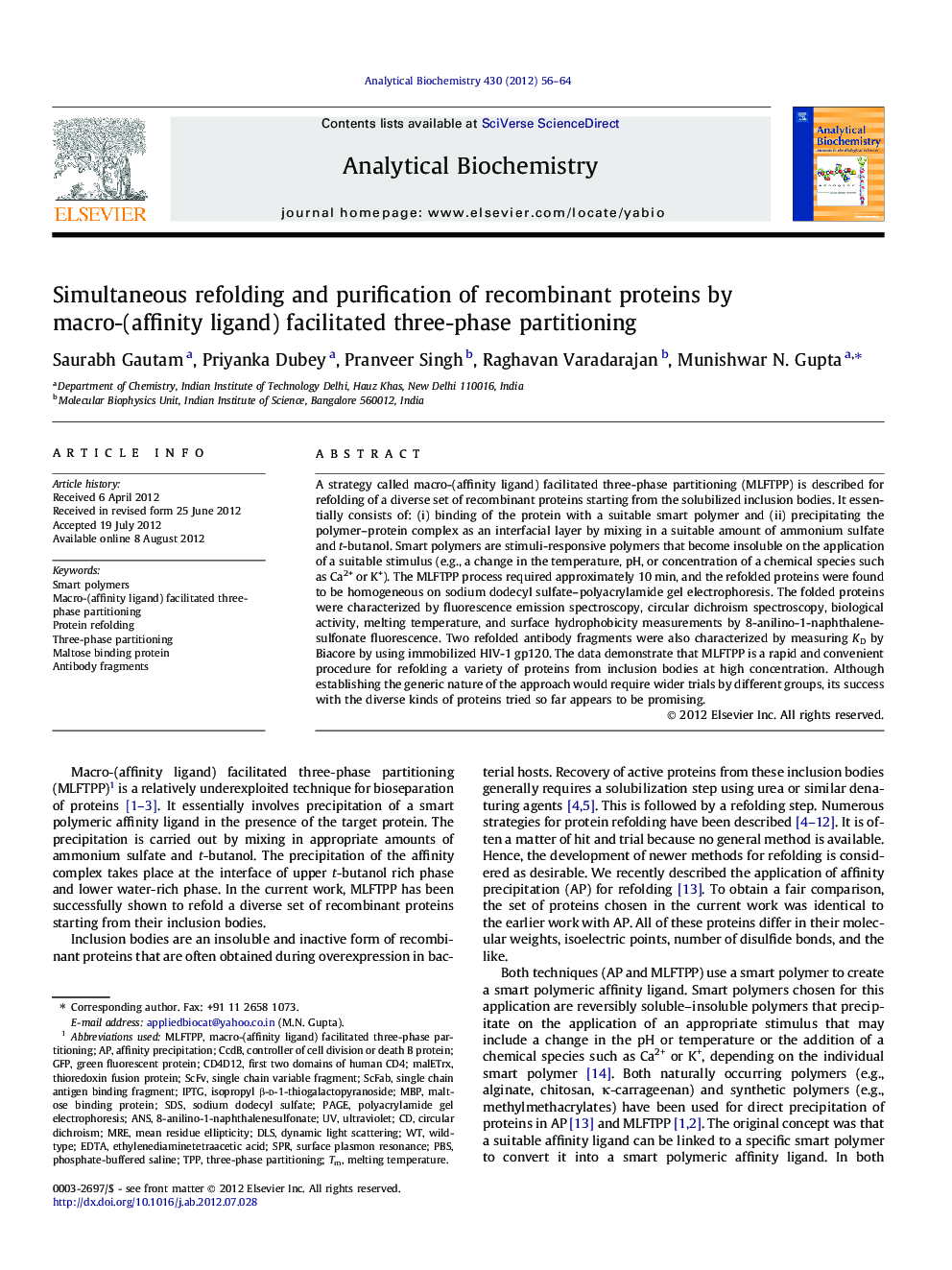| Article ID | Journal | Published Year | Pages | File Type |
|---|---|---|---|---|
| 1172950 | Analytical Biochemistry | 2012 | 9 Pages |
A strategy called macro-(affinity ligand) facilitated three-phase partitioning (MLFTPP) is described for refolding of a diverse set of recombinant proteins starting from the solubilized inclusion bodies. It essentially consists of: (i) binding of the protein with a suitable smart polymer and (ii) precipitating the polymer–protein complex as an interfacial layer by mixing in a suitable amount of ammonium sulfate and t-butanol. Smart polymers are stimuli-responsive polymers that become insoluble on the application of a suitable stimulus (e.g., a change in the temperature, pH, or concentration of a chemical species such as Ca2+ or K+). The MLFTPP process required approximately 10 min, and the refolded proteins were found to be homogeneous on sodium dodecyl sulfate–polyacrylamide gel electrophoresis. The folded proteins were characterized by fluorescence emission spectroscopy, circular dichroism spectroscopy, biological activity, melting temperature, and surface hydrophobicity measurements by 8-anilino-1-naphthalenesulfonate fluorescence. Two refolded antibody fragments were also characterized by measuring KD by Biacore by using immobilized HIV-1 gp120. The data demonstrate that MLFTPP is a rapid and convenient procedure for refolding a variety of proteins from inclusion bodies at high concentration. Although establishing the generic nature of the approach would require wider trials by different groups, its success with the diverse kinds of proteins tried so far appears to be promising.
